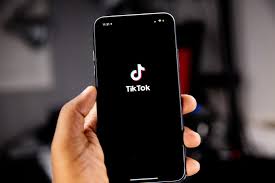Despite facing an array of challenges – which, at times, threatened the app’s very existence – TikTok has continued to grow in 2020 and looks set to become an even more important, and influential platform in the year ahead.
But while TikTok has seemingly avoided a ban in the US (for now), the app remains under scrutiny, due to concerns about its impact on young users, and international data security considerations, given its Chinese ownership.
On the first point, TikTok is set to once again be examined over the ways in which it tracks and uses data from underage users as part of newly launched legal proceedings in the UK.
As per Sky News UK:
“A 12-year-old girl from London, who cannot be identified, plans to bring damages to claim against six firms said to be responsible for TikTok and its “predecessor” app Musical.ly for “loss of control of personal data”. According to a High Court ruling published on Wednesday, the action alleges the firms have “misused the claimant’s private information and processed the claimant’s personal data” in breach of EU and UK data protection laws.”
The case is the latest of many that have brought against the app over the same concern:
- In October, Pakistan’s Telecommunication Authority temporarily banned TikTok in the nation due to “immoral and indecent content” in the app, which was being made available to young users. TikTok implemented changes and the ban was lifted shortly after.
- In August, French officials announced a new investigation into TikTok’s data-gathering practices, primarily due to concerns around its measures to protect younger users.
- In July 2019, the UK Information Commissioner launched an investigation into how TikTok handles the personal data of its young users, and whether it prioritizes the safety of children on its network.
- In February 2019, the FTC fined TikTok a record $5.7 million for illegally collecting the names, email addresses, pictures, and locations of kids under age 13.
TikTok’s measures to protect younger users are rightfully a key focus – according to internal data obtained by The New York Times, more than a third of the app’s daily users in the US are under 14 years of age. That’s despite the full TikTok experience technically only being made available to users over 13, though the app is available to people under that age threshold in what TikTok calls a “limited app experience“:
“TikTok for Younger Users introduces additional safety and privacy protections designed specifically for an audience that is under 13 years old. TikTok for Younger Users allows us to split users into age-appropriate TikTok environments, in line with FTC guidance for mixed audience apps. Users enter the appropriate app experience after passing through an age-gate when they register for a TikTok account.”
So the only thing stopping younger users from logging-on and accessing all TikTok has to offer is a fairly loose age-gate, which no doubt many are subverting. That could also mean that even more than a third of all US TikTok users are under 14, as its official data would be based on self-registered birth dates.
As such, the concerns around TikTok’s child protection efforts are valid, and it makes sense for authorities to be scrutinizing, and challenging the app. That only becomes more pressing as it continues to grow, and its influential capacity increases. And while TikTok’s overall focus is on fun, light-hearted short clips, there’s clearly a level of inherent exploitation within that framework, with young girls, in particular, incentivized to push the limits of what they share in order to garner more likes.
That concern is not isolated to TikTok, all social platforms need to manage such. But TikTok’s video focus, and young audience appeal, does seem to increase the risk in this respect. And while ideally these concerns could be addressed without legal challenge, it’s a critical element for the platform to manage.
As such, keeping the pressure on TikTok should help ensure it keeps working to provide more protection where possible.
As noted, the other lingering concern for TikTok is international data security, with China’s stringent cybersecurity laws technically dictating that parent company ByteDance would need to share data on TikTok users with the CCP on request. We don’t know whether any such request has been made, nor what the Chinese regime might do with the personal information available on ByteDance’s servers. But while the US Government’s attempts to force TikTok to sell into American ownership lacked the required evidence to gain clear passage, many other authorities have raised similar concerns, and that could still see TikTok face more scrutiny in 2021, which could impede its growth.
TikTok loses 200 million users within a day in late June when the Indian Government banned it due to ongoing conflicts with the Chinese Government. The CCP has continued to bristle at various nations as it pursues its interests, and that could result in further restrictions on Chinese apps, very quickly, if indeed tensions escalate.
These are the key concerns for TikTok, as a platform, moving forward. The app has clearly shown that it can succeed, and become a challenger for the established social media players, and the capacity of its algorithm to tap into personal interests, and keep users glued to the app, is clearly significant. But until it can ensure the protection of younger users, and appease data sharing concerns, queries will linger around the app.
With billions of dollars on the line, it seems likely that TikTok, and ByteDance, will find a solution. But this latest legal battle is another reminder that it won’t necessarily be clear sailing ahead for the latest big social app.

Your point of view caught my eye and was very interesting. Thanks. I have a question for you.
Your point of view caught my eye and was very interesting. Thanks. I have a question for you.